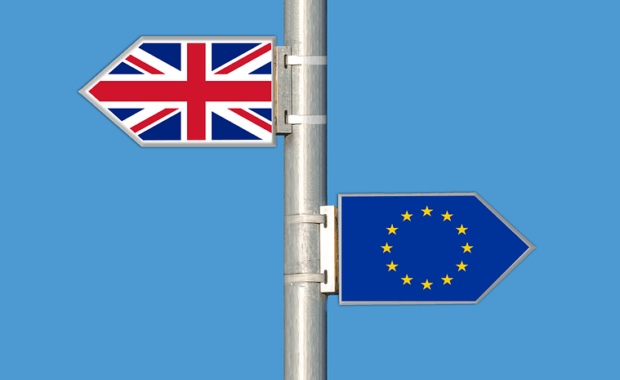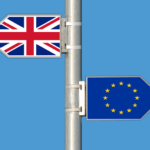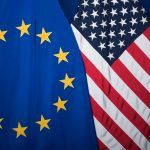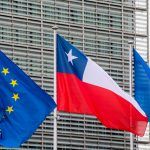SUMMIT PACKAGE
What does the Summit package consist of?
There are three concrete outputs from today’s Summit:
- EU-United Kingdom Joint Statement
- Security and Defence Partnership between the EU and the United Kingdom
- Common Understanding between the European Commission and the United Kingdom
In addition, the European Commission and the United Kingdom noted the political agreements leading to full reciprocal access to waters to fish until 30 June 2038 and extending energy cooperation on a continuous basis.
EXISTING AGREEMENTS
How is today’s package related to the Withdrawal Agreement and the Trade and Cooperation Agreement?
The Withdrawal Agreement, including the Windsor Framework, and the Trade and Cooperation Agreement remain the cornerstone of the EU-United Kingdom relationship. They provide a solid foundation for our cooperation across a broad range of areas.
More specifically, the Trade and Cooperation Agreement is the most ambitious agreement of its kind that the EU has concluded with a third country. It has significant further potential to be exploited.
Today the EU and the United Kingdom have renewed their commitment to the full, faithful and timely implementation of these agreements.
Today’s package builds upon this solid foundation.
CONSOLIDATION OF TRADE AND COOPERATION AGREEMENT
What has been decided on fisheries?
Today, the European Commission and the United Kingdom have reached a political agreement leading to full reciprocal access to waters beyond 30 June 2026 and until 30 June 2038. The aim is to ensure stability and predictability for fishers on both sides of the Channel.
The European Commission and the United Kingdom have committed to take the necessary steps to formalise this political agreement within a month.
The Trade and Cooperation Agreement sets the rules for the sustainable management of shared fish stocks between the EU and the United Kingdom. It establishes a framework for annual consultations between the two parties to determine the volume of each shared stock (‘fishing opportunities’ or ‘TACs’). The Trade and Cooperation Agreement also sets the quota shares that the EU and the United Kingdom fishers can fish, respectively. Finally, it provides for reciprocal access to each other’s waters to fish these shared stocks.
The Trade and Cooperation Agreement guarantees full reciprocal access to waters until 30 June 2026.
What has been decided on energy?
Today the European Commission and the United Kingdom have reached a political agreement to continuously extend the application of the Trade and Cooperation Agreement’s energy title and to proceed with the first of such extensions until 31 March 2027, and on an annual basis thereafter.
The European Commission and the United Kingdom have committed to take the necessary steps to formalise this political agreement within a month.
The Trade and Cooperation Agreement provides for cooperation on energy between the EU and the United Kingdom. In particular, it sets rules to facilitate trading energy and raw materials across borders, provides for the cooperation of the EU and United Kingdom in terms of network development (especially in the North Seas Energy Cooperation) and cooperation between transmission system operators and regulators.
Under the Trade and Cooperation Agreement, the energy title that provides for this cooperation is due to automatically expire on 30 June 2026.
The European Commission and the United Kingdom agreed also in the Common Understanding to explore United Kingdom’s participation in the EU’s internal electricity market (see below for more details).
COMMON UNDERSTANDING
What has been agreed today?
The Common Understanding reaffirms the importance of the full, timely, and faithful implementation of the existing agreements, i.e. the Withdrawal Agreement, including the Windsor Framework, as well as the Trade and Cooperation Agreement.
It refers to the political agreement that has been reached between the European Commission and the United Kingdom to consolidate existing cooperation in the area of fisheries and energy (see above for more details).
The Common Understanding also identifies five broad areas of future work to strengthen EU-United Kingdom relations, in accordance with our respective procedures and legal frameworks:
- Security, defence and development cooperation.
- Putting people at the centre of the EU-United Kingdom relationship.
- Strengthening our economies while protecting our planet and its resources.
- Internal security, judicial cooperation.
- Irregular migration.
Over the past weeks, the European Commission and the United Kingdom have explored a number of areas where there is potential to strengthen cooperation. The Common Understanding is a political document that sets out the conclusions of those exploratory talks.
The European Commission will follow up swiftly on the areas identified in the Common Understanding according to the procedures set out in the EU Treaties.
On a number of key issues, such as a SPS Agreement or an ETS linkage agreement, this will require the Commission to propose a mandate and seek the authorisation of the Council to launch negotiations. The Commission’s proposals will reflect the content of the Common Understanding.
I – SECURITY, DEFENCE AND DEVELOPMENT COOPERATION
SECURITY AND DEFENCE
What is the Security and Defence Partnership?
The EU and the United Kingdom have concluded a comprehensive, balanced and mutually beneficial Security and Defence Partnership, reflecting the mutual ambition to strengthen cooperation on security and defence. It is a tailored political framework of cooperation, and it structures our broad and deepening relations across the full spectrum of peace, security and defence matters. In a volatile geopolitical context, it will help the EU and the UK reinforce joint efforts to guarantee the best outcome for Ukraine, protect European security and beyond, and securing our collective future.
This new Partnership will facilitate regular high level dialogue. It establishes six-monthly foreign and security policy dialogues between the EU High Representative and the UK Foreign and Defence Secretaries, and strategic consultations in areas of joint interest such as Russia/Ukraine, Western Balkans, Indo-Pacific and hybrid threats. It also creates a new, dedicated annual security and defence dialogue and exchanges on many areas, from peace mediation to crisis response.
In this context, the EU and the UK will regularly exchange on their respective security and defence initiatives, including on defence readiness and defence industry, and will explore possible mutual involvement in them.
The Partnership considerably widens the scope of the security and defence areas of cooperation between the European Union and the United Kingdom, covering among other areas:
- Peacebuilding.
- Civilian and military crisis management
- Maritime security
- Space security
- Cyber issues, and emerging disruptive technologies.
- Countering hybrid threats and resilience of critical infrastructure.
- Fighting foreign information manipulation.
- Counterterrorism and preventing/countering violent extremism.
- Climate and security nexus.
- External aspects of economic security and irregular migration.
More information can be found on the website of the External Action Service.
Will the United Kingdom be able to participate in the Security Action for Europe (SAFE) instrument?
The conclusion of a Security and Defence Partnership allows the United Kingdom to participate in common procurement actions under SAFE with Member States.
It also allows the United Kingdom to request negotiations for an EU-United Kingdom bilateral agreement enabling the participation of the United Kingdom’s defence industry entities in the SAFE instrument.
This is subject to the adoption of the SAFE regulation and the related provisions regarding the participation of third countries and third-country entities and products.
II – PUTTING PEOPLE AT THE CENTRE OF THE EU-UNITED KINGDOM RELATIONSHIP
YOUTH EXPERIENCE SCHEME
What has been agreed as regards youth exchange?
The European Commission and the United Kingdom agreed to work toward a youth experience scheme, which should facilitate the participation of young people from the EU and the United Kingdom to travel, work, volunteer and study in each other’s territories. The exact conditions related to this scheme will be decided during the negotiations.
Would the scheme reinstate free movement as it applied while the United Kingdom was a Member State?
The scheme is not about free movement of persons.
The envisaged scheme would provide for age-limited, time-limited mobility, subject to the fulfilment of certain conditions to be checked before the mobility can take place. Conditions will also be defined for the period of stay. The scheme would provide a dedicated visa path and ensure that the overall number of participants is acceptable to both sides.
ERASMUS+
What has been agreed on Erasmus+
The European Commission and the United Kingdom should work towards the association of the United Kingdom to the European Union Erasmus+ programme. The specific terms of this association, including mutually agreeable financial terms, should be determined as part of this work in order to ensure a fair balance as regards the contributions and benefits of the United Kingdom. The association should be in accordance with the European Union Multiannual Financial Framework and the Trade and Cooperation Agreement.
The association of the United Kingdom to Erasmus+ would support activities such as exchanges for students, at university and other academic levels, exchanges and training activities for academic staff, cooperation among higher education institutions, youth exchanges, and the support for the professional development of sport staff.
III – STRENGHTENING OUR ECONOMIES WHILE PROTECTING OUR PLANET AND ITS RESOURCES
ELECTRICITY COOPERATION
What has been agreed in the area of electricity?
The European Commission and the United Kingdom will explore the possibility of an agreement leading to the participation of the United Kingdom in the EU’s internal electricity market, including wholesale and retail electricity. The agreement would require that the United Kingdom dynamically align to the relevant EU rules. Within an arbitration-based dispute resolution model, the European Court of Justice is the ultimate authority for all questions of European Union law.
This exploratory work will be pursued after the Summit. In the meantime, the current electricity trading arrangements will continue to apply.
SANITARY AND PHYTOSANITARY (SPS) agreement
What has been agreed as regards Sanitary and Phytosanitary (SPS) agreement?
The European Commission and the United Kingdom agree to work towards an SPS agreement in respect of Great Britain.
As a result of an SPS agreement, the vast majority of movements of animals, animal products, plants, and plant products between Great Britain and the European Union could be undertaken without SPS certificates and checks.
The SPS agreement would cover sanitary, phytosanitary, food safety and general consumer protection rules applicable to the production, distribution and consumption of agrifood products, the regulation of live animals and pesticides, the rules on organics as well as marketing standards applicable to certain sectors or products.
The agreement would require that the United Kingdom dynamically aligns to the relevant EU rules. Within an arbitration-based dispute resolution model, the European Court of Justice is the ultimate authority for all questions of European Union law
How would the SPS Agreement affect the Windsor Framework?
An SPS agreement, together with the Windsor Framework, would greatly facilitate the movement of agri-foods between Great Britain and Northern Ireland.
Until an SPS agreement is concluded and applied, the SPS arrangements under the Windsor Framework continue to apply and need to be delivered in full, both in terms of flexibilities and safeguards.
LINKING OF EMISSIONS TRADING SYSTEMS
What has been agreed as regards linking of emissions trading systems?
The European Commission and the United Kingdom have agreed to work towards establishing a link between their emission trading systems. As a result, carbon allowances issued by either the EU or the United Kingdom could be recognised for compliance under the greenhouse gas emissions trading scheme of the other party.
Furthermore, the linking agreement would create conditions for the mutual exemptions from the respective European Union and the United Kingdom Carbon Border Adjustment Mechanisms.
The agreement should ensure the dynamic alignment of the United Kingdom with the relevant European Union rules underpinning the functioning of the ETS link. Within an arbitration-based dispute resolution model, the European Court of Justice is the ultimate authority for all questions of EU law.
BUSINESS MOBILITY
What has been agreed on business mobility?
The Trade and Cooperation Agreement provides for rules on the entry and temporary stay of natural persons for business purposes.
Within this framework, the European Commission and the United Kingdom shall hold a dedicated dialogue on business mobility.
The dialogue will focus on the application of the United Kingdom sponsorship scheme to EU service suppliers and on the recognition of professional qualifications for specific regulated professions.
The Union has repeatedly expressed its concerns about the application of the United Kingdom sponsorship scheme to EU service suppliers going to the United Kingdom to provide a short-term service.
TRADE IN STEEL
What has been agreed on trade in steel?
The EU and the UK agreed to safeguard historic tariff-free trade in steel products under category 17.
For this purpose, the EU will make a legislative proposal for a country-specific quota for UK steel in category 17 under the current safeguard.
This issue will also be duly reflected in a post-2026 regime.
IV – INTERNAL SECURITY, JUDICIAL COOPERATION
What has been agreed on internal security and judicial cooperation?
At the Summit, the European Commission and the United Kingdom agreed to quicker and better implementation of the Trade and Cooperation Agreement and to reinforce their cooperation. This means, for example:
- Reinforcing cooperation at Europol.
- Finalising work setting up the exchange of vehicle registration data under the Agreement.
- Exchanging fingerprints and DNA and ensuring access to criminal records of third country nationals.
- Adding facial images to the data exchange for the prevention, detection and investigation of criminal offences.
- Agreeing a working arrangement between the EU Drugs Agency and the competent United Kingdom authority.
V – IRREGULAR MIGRATION
What has been agreed on irregular migration?
The European Commission and the United Kingdom have agreed to deepen cooperation on the challenges posed by irregular migration. They will for instance:
- Share more operational information, best practices and expertise on the external dimension of migration.
- Enhance operational and strategic cooperation, for example at Europol and its European Migrant Smuggling Centre.
- Reinforce cooperation in EU networks and agencies, including the EU’s Global Alliance to Counter Migrant Smuggling, the European Migration Network and the European Union Agency for Asylum. They will explore United Kingdom participation in the Khartoum and Rabat Processes.
More information: European Commission
Also, from the CDE of the University of Almeria, we have made a mini reportage with interviews so that you know the origin of Brexit and the legal process for the exit of a Member State of the Union, as well as the opinion of citizens of different profiles. You can watch it on our social networks:
Ver esta publicación en Instagram







Leave a Reply